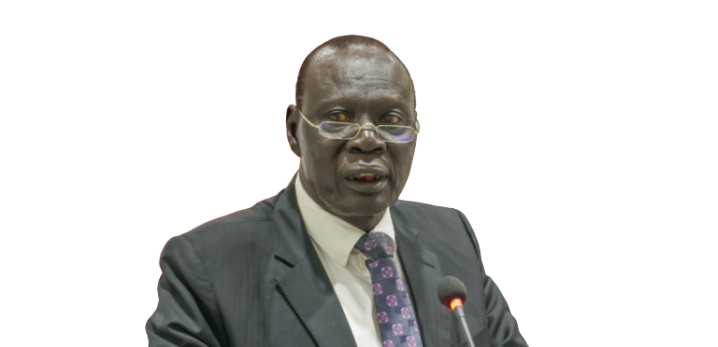South Sudanese lawmakers are calling for urgent action to address the country’s ongoing liquidity crisis, with some proposing a change of currency to recover cash hoarded by individuals. Others are demanding the appearance of top financial officials before the Transitional National Legislative Assembly.
The concerns were raised after members of parliament (MPs) experienced difficulties withdrawing their salaries from commercial banks, despite the Ministry of Finance and Planning having deposited the funds.
Michael Ruot Koryom, who introduced a motion on the transfer of salaries to commercial banks, said lawmakers have been unable to access their full pay for two consecutive months.
“For the last two months, MPs have not been able to withdraw their salaries, which were transferred to commercial banks,” Koryom said. “Civil servants and MPs have their salaries deposited in personal accounts, but difficulties have arisen. Cash limits have dropped from 500,000 to 50,000 South Sudanese pounds.”
He added that members are forced to queue at banks to withdraw limited amounts — often 50,000 or 100,000 pounds — which he said are not sufficient to meet their daily needs.
“Due to lack of cash, civil servants have to line up in order to deposit or withdraw,” he said, adding that lawmakers are frequently forced to borrow money or seek credit elsewhere. “I am recommending that the Minister of Finance and the governor of the Central Bank be summoned to appear before this August House to clarify why this is taking place.”
Julius Molinka, a lawmaker from Budi County in Eastern Equatoria state representing the ruling SPLM party, suggested the crisis may be the result of internal sabotage and called for both discipline and reform.
“Given the opportunity through the Ministry of Finance and the Bank to do whatever they think is necessary, there must be financial discipline in this country,” Molinka said.
He urged the national government to change the national currency to flush out money held outside the banking system.
“When you produce a lot of the same currency, the value of the money will go down,” he said. “Let the government take a step to produce new currency. By doing so, the holders of the money will be given seven days to bring their money and exchange it with the new one.”
“You will see the mountains of money that will be coming to the bank,” he added. “From there, the government will regulate the amount of money in circulation.”
John Badeng Chan, another SPLM lawmaker representing Jonglei State, echoed these concerns, noting that many citizens prefer keeping money at home due to a lack of trust in the banking system.
“Most traders, including our own nationals, are keeping their money at home,” he said. “I personally asked some of them, and they said if they keep the money in the banks, they won’t be able to get it.”
He supported a currency change as a way to recover idle cash held outside the financial system.
Betty Acan Ogwaro, also from Eastern Equatoria, said she and her colleagues often queue for hours at banks only to receive 50,000 SSP — an amount she said is insufficient to meet basic expenses.
“These banks are not making banking attractive. So, people have the right to hold their money,” Ogwaro said. “In the past, when you put your money in a savings account, they paid interest because they were using your money to trade. Today, the bank takes money from you when you’re withdrawing — they charge you for keeping your money — and then they’re gone when you need to make a purchase. This is not acceptable.”
Second Deputy Speaker Parmena Awerial Aluong announced that, based on the lawmakers’ concerns, the Minister of Finance, the Central Bank governor, and the Financial Intelligence Unit will be summoned to appear before the assembly within seven days.
In July, Dr. Akim Ajieth Buny, an economics lecturer at Dr. John Garang Memorial University, told Radio Tamazuj that introducing a new currency could help reduce hoarding.
“Introducing a new currency would force people hoarding money in homes to return it to banks,” he said, adding that printing more money would only worsen inflation and weaken the South Sudanese pound (SSP).
Dr. Buny also recommended pegging the SSP to the U.S. dollar but cautioned that this would require significant financial reserves.
“Saudi Arabia fixed its riyal at 3.75 per dollar in 1986, but it had strong reserves,” he said. “South Sudan must build reserves through transparent oil revenue management first.”
The liquidity crunch has highlighted deep vulnerabilities in South Sudan’s economy, which remains heavily dependent on oil revenues and has seen limited progress in economic diversification.
In June, former finance minister Dr. Marial Dongrin Ater acknowledged the cash shortage but offered no long-term solutions.




